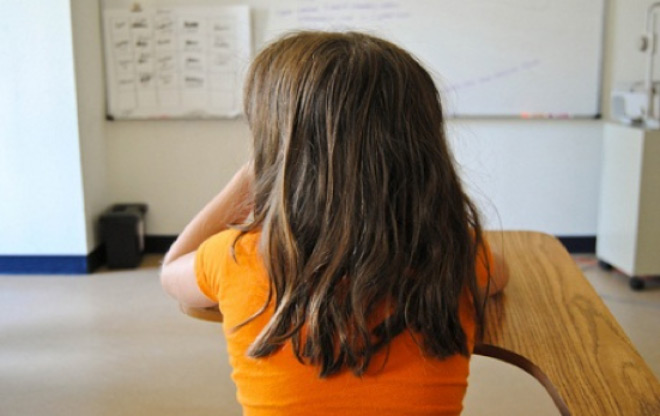Blog Categories
Search Blog
Blog Categories
Would a Psycho-educational Assessment Be Right for My Child?
Parents often seek out psychology services because they are looking for a psycho-educational assessment for their child. This assessment may be initiated due to school and/or parental concerns about a child’s cognitive functioning, learning, attention, and/or behaviour at school. Psycho-educational assessments evaluate a child’s thinking/reasoning abilities and underlying psychological processes (e.g., memory, attention, processing, executive functioning), academic achievement (e.g., reading, writing, math, oral language), behaviour and social-emotional functioning in the context of her stage of development and in comparison to other children her age.
The goal of a “psycho-ed” assessment is therefore to identify areas of strength and weakness cognitively and academically so that these areas can be targeted through intervention or additional support. Using all of the information gained over the course of the assessment – from interviews, parent, teacher and child rating scales, one-on-one testing results, and observations of the child –the psychologist seeks to provide the child, her family and (with consent from the family) her teachers, with a clear picture of her abilities and her needs in the classroom, at home and with peers. The psychologist will compile her findings into a report, and will discuss all findings, diagnoses and recommendations with the family at the end of the assessment process. Referrals to other services may be made as appropriate, such as to occupational therapy for fine motor concerns or to speech-language pathology for communication difficulties.

Photo: Elizabeth Albert, September 10, 2010, Creative Commons Attribution.
Tips for Parents
1. Listen for feedback, from the school and from your child.
Although seeking out a psycho-ed assessment after the first bit of negative feedback from the school is likely jumping the gun, seeking one out after consistent negative feedback– especially if the child has already received some classroom accommodations – could be very beneficial. A psycho-ed assessment could be valuable if: you are noticing that your child is starting to lose interest in school; she is expressing that she is “bad in school” and therefore doesn’t want to put in effort anymore; she is expressing that the work is too hard. Similarly, take note if your child not grasping new skills as readily as one would expect. It is important to note whether she is only able to grasp new skills and concepts with tremendous effort or a substantial amount of parental support.
2. Behaviours tell a story.
A child’s behaviour in the classroom may be indicative of learning or attentional difficulties. A child may appear disruptive because she does not know what is going on in the classroom, or she is having trouble following directions; she may be trying to avoid doing work because she doesn’t know what to do. She may not want her peers to know that she can’t do the work they are doing. She may be acting out to distract attention away from her area of vulnerability. Similarly, the child may have sensory needs that are not being met in the classroom environment (NB: Concerns about sensory processing are best addressed through occupational therapy. See the “What is in Your Sensory Tool Kit” blog post for more details). When a child is exhibiting disruptive behaviours in the classroom and/or appears inattentive while also progressing more slowly than her peers, a psycho-educational assessment could be helpful in exploring the reasons why this might the case.
3. Look for changes related to your child’s interest in school.
Some children show academic weaknesses despite clear successes early on. A child may not have shown any difficulty grasping concepts initially, but is now seemingly disinterested in putting effort into schoolwork. She may express being bored in school; she may be doing what parents consider “the minimum” to get by. Parents may suggest that their child appears very bright and could be at the top of her class if she only worked harder. A psycho-educational assessment could be helpful in this case to make sense of this disconnect between the child’s potential and her current performance at school.

Photo: Brad Flickinger, January 2nd, 2012, Creative Commons Attribution
4. Get prepared…
For the intake process: A psycho-ed assessment is an intensive process for both a child and her family. As parents, you will be involved in the initial intake interview and will likely be asked to fill out a number of forms detailing your child’s medical and developmental history, current behaviour and social-emotional functioning. It’s ideal to have both parents present for the intake interview, to get the most comprehensive picture of the child. Parents are encouraged to bring any previous reports they may have to this interview, as well as any pertinent report cards, questions and concerns.
For testing sessions: Depending on your child’s age, you will need to schedule a number of hours of one-on-one testing. To maximize performance, we recommend morning testing sessions, which will likely require the child to miss some school. Moreover, we don’t want to exhaust the child over one testing session; scheduling a few testing “blocks” over a few days prevents mental and physical fatigue, and optimizes your child’s motivation. Although the clinician will attempt to make the experience as enjoyable and dynamic as possible, it can be tiring, and children often need a break before returning to school after a testing session.
For contact with the school: Finally, letting the school know that you are seeking out a psycho-ed assessment and finding ways for the psychologist to contact your child’s teacher, is extremely helpful. With the family’s consent, it is ideal to get a teacher’s perspective on the child’s functioning. In some cases, it can also be helpful for the psychologist to observe your child in the classroom. Scheduling this visit can take time, but the process is made easier if the principal and teacher are aware that they may be contacted.
5. Timing is important (i.e., Don’t wait until the fall).
Individual Education Plans (IEPs), for children who require accommodations or modifications to their school program, are usually developed at the beginning of the school year – normally in October – once the child has had time to get used to their new class and teacher. For this reason, it is often most helpful for the school to be aware of any areas of intervention in advance of this process, so that the child’s IEP is well-tailored to the child’s specific needs. As part of a psycho-ed assessment report, the psychologist will provide recommendations directly pertaining to the school setting, with the intention that these will be implemented by the child’s teacher and school staff. Moreover, the psychologist is often willing to speak or meet with school staff in person once the report is complete to interpret the assessment results.
Despite feedback from the teacher at the end of the school year that a child is struggling, many parents will seek out this assessment in August or in early September. These assessments, however, take time: testing alone can take a number of hours, and the scoring, interpretation and report-writing are quite lengthy. For this reason, parents are encouraged to seek out an assessment earlier in the spring or summer. Given that schools are not in session in the summer, parents may want to ask the child’s teacher if there is a way for the psychologist to contact them over the holidays. Teachers are often quite willing to connect with the psychologist initially via email during the summer months, and subsequently speak with them over the phone.
For more information about psycho-educational assessments at Boomerang Health, please feel free contact our Intake Coordinator at 905-553-3155.






